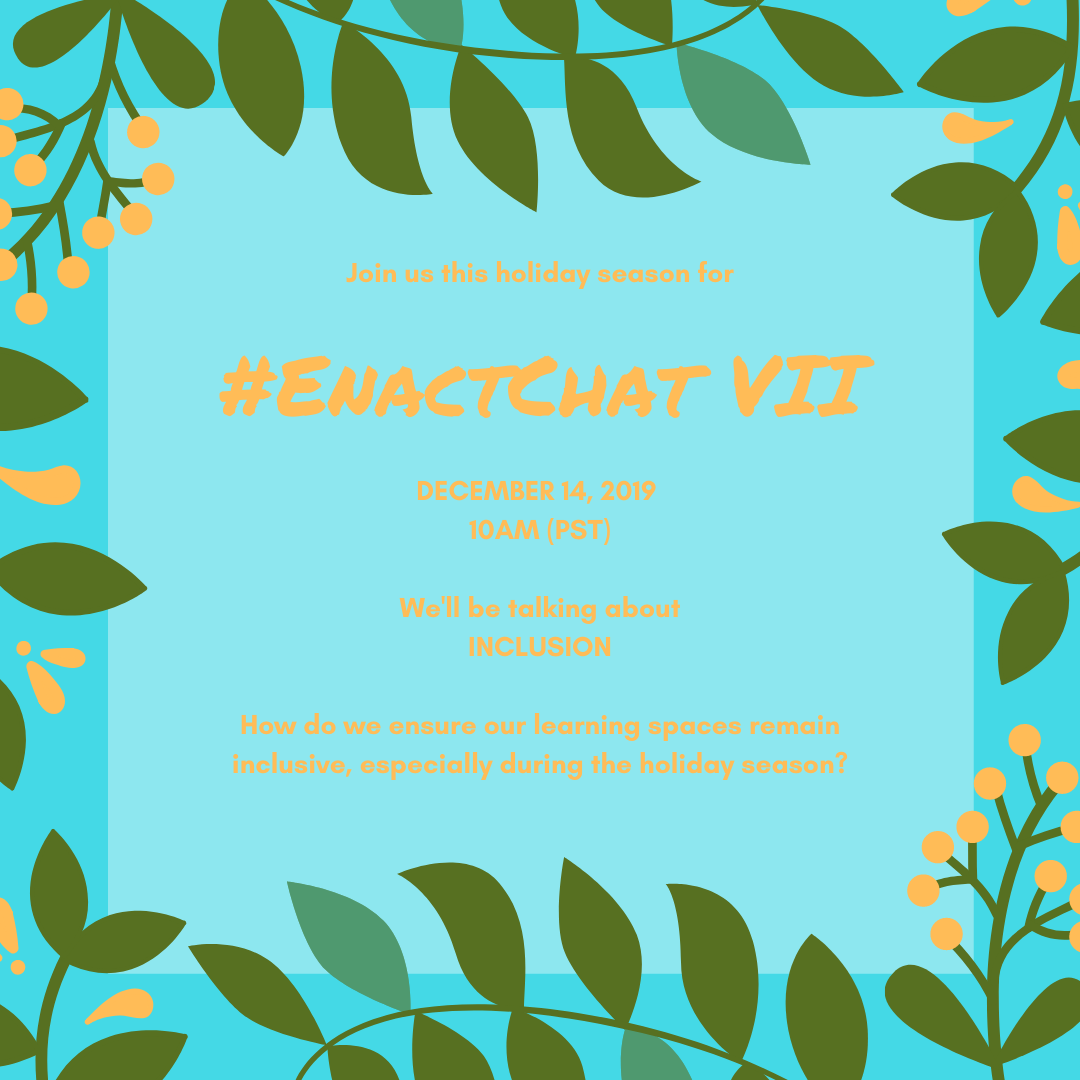|
By Estella Church & Mandy Matthews During this time of year, teachers begin plastering their classroom walls with Christmas trees, twinkle lights, ornaments, and other Christmas decor. We even play Christmas carols sometimes, often without regard for students’ various religions, traditions, and holiday practices. What if, as you’re playing a randomized winter playlist, “First Noel” comes on. Your student, who is a Jehovah’s Witness, turns inward, gets quiet, and suddenly chooses not to participate. You have no idea why since they are usually social, bubbly, and participates in class regularly. Did you consider they might feel uncomfortable within their learning space because of the Christmas vibes?
As we wrap up semester 1 and move through the winter season, here are 5 do’s and don’ts around creating and protecting inclusive learning spaces. Do celebrate and acknowledge holidays other than in the month of December. Don’t focus on holidays primarily in December, it might come off that Christian Christmas is being favored.
Do educate yourself on all holiday traditions including origin, history, and how they are observed. Don’t guess holiday traditions and present them inauthentically.
Do educate students on the difference between secular and religious meanings. Don’t create new myths around holidays based on misinformation.
Do share authentic demonstrations (videos, images, documentaries). Don’t practice reenactments.
Do share thematic framework of a holiday and connect the message to other teaching points throughout the year. Don’t ignore the underlying theme or origin of a holiday tradition.
“The December Dilemma”: Teaching Tolerance has created a great resource on inclusion during the holiday season. It features a webinar as well as a planning pack. The planning pack is especially useful as it asks us as educators to be reflective on our practice and self-assess present inclusion strategies or practices around the winter holiday season. #EnactChat VII: Inclusion Join us on December 14th at 10AM (PST) to share your best practices around creating inclusive learning spaces, especially around the holiday and winter season. We will discuss the following questions:
0 Comments
|
AuthorsThis blog is curated by EN-ACT creators, Mandy Matthews & Estella Owoimaha-Church. Archives
March 2020
CategoriesAs an Amazon Associate, EN-ACT earns from qualifying purchases.
|


 RSS Feed
RSS Feed
